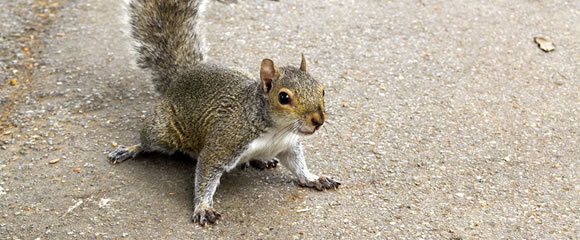 New Jersey Wildlife Removal Company provides services throughout the State of New Jersey and services major cities of Northern NJ including Newark, Jersey City, Trenton, Edison, Elizabeth, New Brunswick, Woodbridge, Middletown and East Orange, NJ.
New Jersey Wildlife Removal Company provides services throughout the State of New Jersey and services major cities of Northern NJ including Newark, Jersey City, Trenton, Edison, Elizabeth, New Brunswick, Woodbridge, Middletown and East Orange, NJ.
We are experts in Wildlife Control and Wildlife Removal and our list of services include Wildlife Management, Animal Control, Animal Removal and Attic Cleaning and Repairs for Residential, Industrial and Commercial Properties.
New Jersey Wildlife Removal specialist provide Wildlife Pest Control and Wildlife Management services which include Squirrel Control, Squirrel Control, Squirrel Exclusion, Bird Control, Raccoon Control, Skunk Removal, Bat Control and Snake Removal. We remove household pests in a humane manor and will clean up the mess they may have left behind and repair any damage these pests have caused to your home.
New Jersey Wildlife Removal is a full-service pest control company that will assist you with problems caused by Squirrels, Raccoons, Bats, Snakes, Birds, Fox, Skunks, Deer, Geese, Groundhogs, Opossums, Rabbits, Chipmunks and more. We love a challenge so give us a call. Our experience in the greater New Jersey. area includes jobs such Bird Spike Installation, Attic Insulation Cleaning, Adding Attic Insulation, Squirrel Exclusions and Raccoon Trapping jobs.
Most of our work is guaranteed for up to a year against animal reentry. We also provide Dead Wildlife Removal and many other services that make us one of the most complete wildlife removal companies providing wildlife services in New Jersey. We are one of only a few companies that have a Nuisance Wildlife Removal Permit from the State of New Jersey and we are FULLY INSURED. We are also a proud member of the National Wildlife Control Officers Association.
Eastern gray squirrels (Sciurus carolinensis) are medium sized arboreal or tree squirrels. Their back is grizzled dark to pale gray and may be tinted with reddish coloration on their hips, feet and head. The tail and stomach are white to pale gray. In the north, both their ears and soles of their feet grow heavy fur during winter. Generally, there is no difference between males and females with respect to size or coloration. Eastern gray squirrels have two breeding seasons per year and most breeding occurs in December through February and May through June.
Females can have two litters per year, one from each breeding season. Average litter sizes range from 2 – 3 individuals. The winter litter is generally smaller than the summer litter. Both sexes remain reproductively active throughout their lives. The squirrel easily adapts to whatever situation confronts them. The secret to their survival is how quickly they learn the ropes around the neighborhood. If there is no food available, the squirrel will travel for miles to find it and then set up his home nearby.
Their nest, called a “drey”, is usually built high up in the trees. If no tree is available, the squirrel will build it in the next best thing, an attic. The squirrel is one of New Jersey’s most common wildlife pests. If you hear noises in your attic, odds are you have a uninvited guest squirrel. The most common noise complaints are folks hearing lots of “scratching”. This could be a sign that a female squirrel is preparing to have her young. This should be addressed immediately before the young are old enough to also cause damage to your home and electrical wiring. Damage also comes from chewing. Since the squirrel is a rodent, their front teeth always grow causing the squirrel to constantly to chew to keep teeth sharp and at a manageable level. In nature they chew tree bark, twigs and other natural hard items. In your attic, they chew wiring, support beams, roof braces and electrical fixtures. They can destroy your insulation by trampling it pushing it down, which reduces your R-factor. Their urine and fecal matter will also collect in your insulation.
They also cause damage in drywall by digging holes in the ceiling. This is usually the mother squirrel exercising her back leg muscles to prepare for birth. If you hear chewing or scratching in your attic don’t hesitate to call us. The Tree Squirrel should not be a welcome guest in your home. Squirrels are the most common wildlife pest in New Jersey, You should never let the animal stay in your attic, they should be removed at once!!!
Call the experts at New Jersey Wildlife Removal when you need to repair damage caused by squirrels or other wildlife to prevent squirrel entry and damage in the first place. Don’t let the squirrels of Northern New Jersey take over your home. Give New Jersey Wildlife Removal a call today and rid your home of squirrels and all nuisance and problem animals.